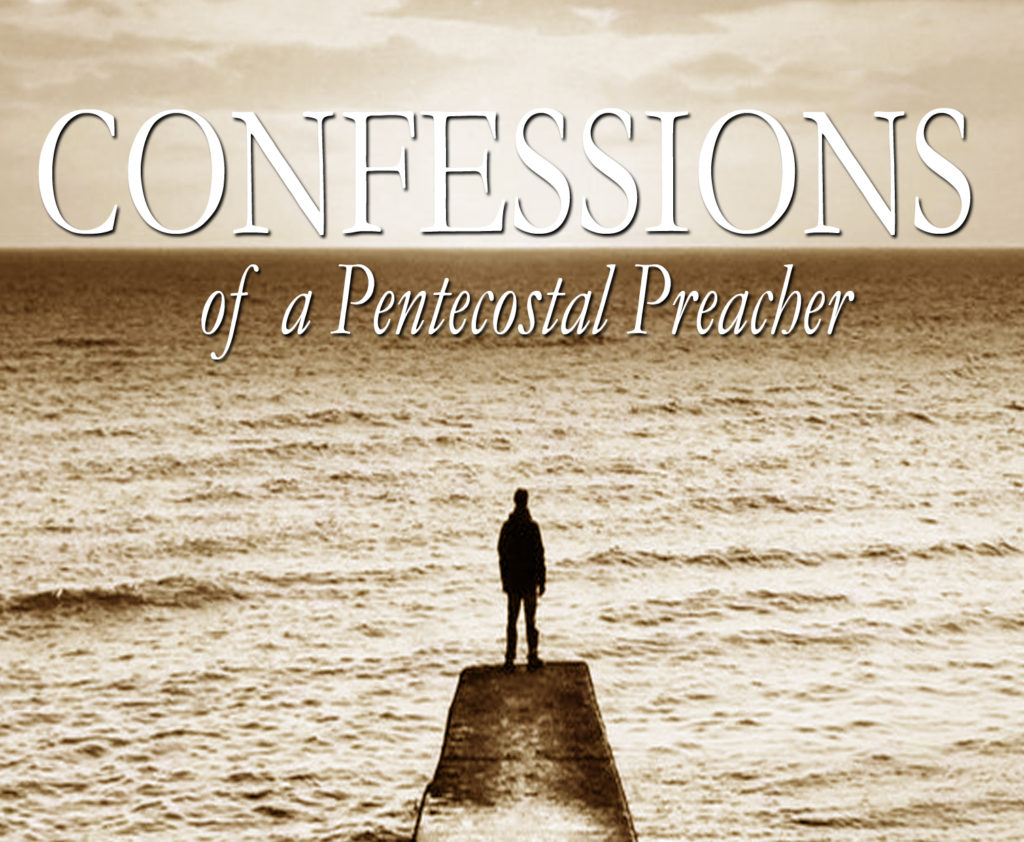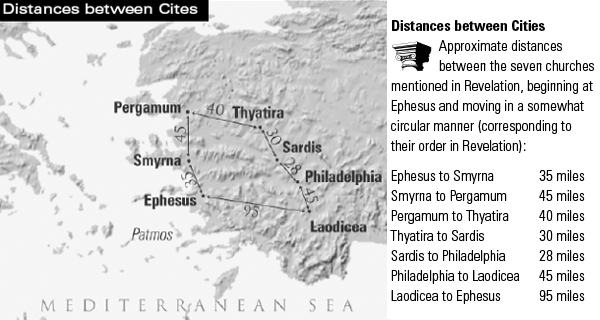Celebrating 35 Years in Global Ministry
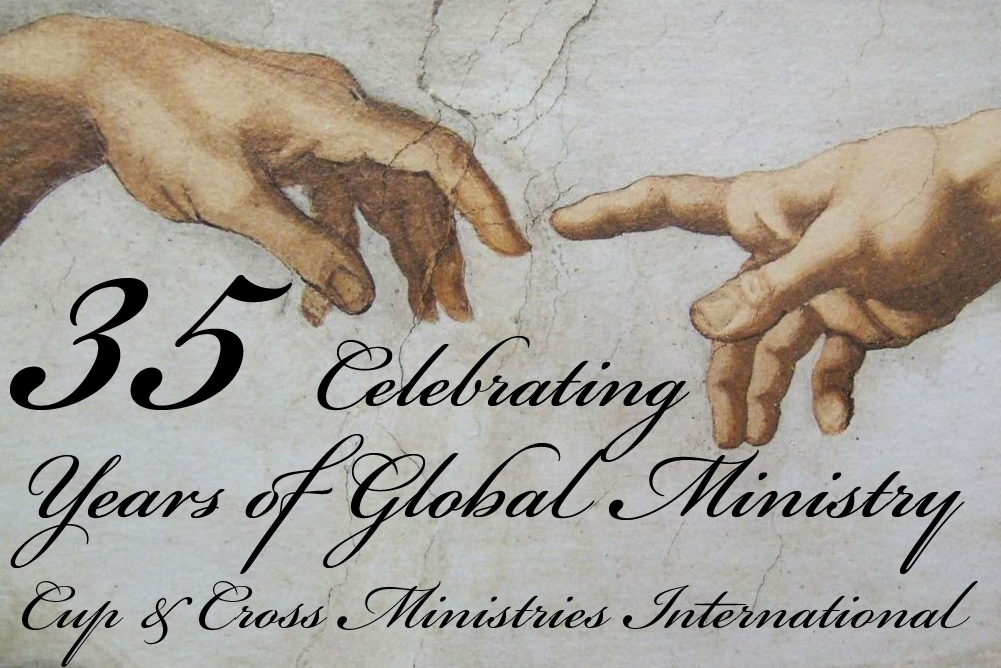
Master’s of Chaplaincy Ministry Program in Bulgaria Renewed
 Master’s of Chaplaincy Ministry Program in Bulgaria Renewed (2010-2023)
Master’s of Chaplaincy Ministry Program in Bulgaria Renewed (2010-2023)
We are proud to announce that the Master’s of Chaplaincy Ministry Program, we designed and launched in Bulgaria in 2006, has been selected to be part of the Social Service Program of New Bulgarian University. After being for years a valuable part of the regular curriculum of the Bulgarian Evangelical Theological Institute and the St. Trivelius Institute in the capital Sofia, the chaplaincy program has received the highest level of recognition as successful graduates will be finally able to receive government recognized degrees and apply their knowledge and training in chaplaincy on a professional level. The chaplaincy program can also serve within the Integration Proposal of local NATO programs and be instrumental in dealing with the enormous wave of Middle East migrants crossing through Bulgaria today.
Although the Bulgarian Chaplaincy Association emerges from and ministers within the Bulgarian cultural context, it is designed for integral cooperation with organizations of various origins. This advantage comes from the experience of previous working relationships that the organizations represented within the Association have had with other non-Bulgarian organizations. The vision, structure and operation of the Association incorporate and comply with western styles of chaplaincy work on three levels (1) cultural, (2) educational and (3) governmental.
The cultural heritage of the Bulgarian Chaplaincy Association represents a valuable environment for integration of NATO forces within the local cultural setting. On a cultural level, various events and activities such as English speaking church services, fellowship of soldiers with local communities, hospitals, orphanages and other cultural experiences are available. Humanitarian aid projects are among the most efficient manner for integration within the local community.
On an educational level, there are possibilities on both sides. For example, Bulgarian language courses for the soldiers and English language courses for the local community could be implemented. The most important element within the education strategy perhaps may be education of chaplaincy workers, especially in the current context when Bulgaria is in a need of trained crisis counselors for cases of floods and other natural disasters. Finally, local and national government relations will assist in the change of the status of chaplaincy within the Bulgarian Army. Such an approach will have positive political implications, as chaplaincy becomes a mediator between the army, church and government.
The presented proposal integrates religious moral issues along with socio-political principles in the idea for chaplaincy within the Bulgarian Army. The implications of these principles project involvement of local NATO units in partnership with local Bulgarian organizations. In the case of chaplaincy within the Bulgarian Army, the proposed organization is the newly established Bulgarian Chaplaincy Association. Although political, social and economical issues remain in the scope of its work, the Association’s main priority is the renewal of spirituality within the army structure through cutting-edge chaplaincy ministry beyond the ecclesial gates into a world of war and insecurity. The Bulgarian Chaplaincy Association acts as an agent of spiritual restoration targeting morality within the Bulgarian Army with the Bulgarian chaplain as the key element in this process. For an army without spirituality is no army at all.
Chronology of Events:
2018 The Road toward a Balkan Multi-Ministry Center and Legal Status
2017 Bulgarian Chaplaincy Association: Legal Case Renewed
2015 Revisting the Integration Proposal with Local NATO Programs by Bulgarian Chaplaincy Association
2014 Bulgarian Chaplaincy Association: Vision and Resolution Reaffirmed
2012 First Class of the Master’s of Chaplaincy Ministry Program
2011 Master’s of Chaplaincy Ministry Program Continues
2010 Master’s of Chaplaincy Ministry Program begins in Sofia, Bulgaria
2009 Bulgarian Chaplaincy Association holds an introductory chaplaincy course in Yambol, Bulgaria
2008 The Case of a NATO Chaplaincy Model within the Bulgarian Army released
2007 Bulgarian Chaplaincy Associations Recognized by U.S. Department of State
2006 Registration for the Bulgarian Chaplaincy Association Rejected by Bulgarian Court
2005 The Bulgarian Chaplaincy Association presented before the Bulgarian Evangelical Alliance
2004 Three U.S. Bases in Bulgaria to be Built by 2010
2003 The Case of a NATO Chaplaincy Model within the Bulgarian Army
2002 First Balkan Chaplaincy Conference at the Central Church of God in Sofia, Bulgaria
2001 Church of God Chaplaincy Commission to visit Bulgaria
2000 Euro-seminar: Christian ethics in the military forces
1997 First Military Ministry Seminar in Veliko Tarnovo
The fall of the Berlin Wall introduced a new reality that Bulgaria was not prepared to embrace. The end of Communism was unable to tear down the communist mentality. Today, an entire Bulgarian generation lives with the scars inflicted by their experience under years of the Communist Regime, while another generation lives with an immense historical gap that has formed a new political, social, economical and cultural reality.
Three points are worth noting about Bulgaria’s Postcommunist context. First, in the beginning of the 21st century Bulgaria is left with armed forces, which were organized and influenced by the Soviet model and still act accordingly. The bureaucratic infrastructure disallows and discourages any changes apart from carefully chosen decisions that keep the army’s activities to the minimum possible. The two main factors needed for any change to occur, namely decision-making processes and chain of command, still operate under an Eastern Soviet paradigm.
Second, atheistic morale has gained the status of a positive military qualification in the Bulgarian military. This may sound familiar for any given army; however, in most cases it replaces a religious attitude with an atheistic one. In the Postcommunist context, atheistic beliefs pervade and even when a soldier experiences a genuine need for spirituality, in most cases s/he has no religious root to which to return. This lack of alternative or spiritual choice results in a pessimistic morale, intensified by the required mandatory military services.
Third, a Postcommunist mentality with definite Balkan characteristics rules not only the army but also the country as a whole. The economical, political and cultural crises have remained an undividable part of Bulgaria’s reality in the past 16 years. There, Postcommunist mentality holds captive every progressive thought and idea.
It is natural to conclude that the active solider within the Bulgarian Armed Forces is left without much choice when it comes to his/her personal and spiritual development. A positive career development is possible only when pressed by the economical factors one accepts to be part of a highly inactive bureaucratic machine. On the other hand, any attempt for spiritual growth is constrained and receives little privilege to become fully expressed. Naturally, such dynamics decrease one’s motivation for further development due to the lack of morale emerging from a personal spirituality. And because an army without a spirit is no army at all, the current condition of the Bulgarian Army is in much need of revival.
Also important [click to read]:
- U.S. Department of State recognizes our chaplaincy efforts in Bulgaria
- Bulgarian Chaplaincy Association: Integration Proposal with Local NATO Programs
- Bulgarian Chaplaincy Association: Vision and Resolution
- Chronology of our role and involvement in developing Church of God chaplaincy in Bulgaria since 2001
- Master’s of Chaplaincy Ministry Program in Bulgaria Reflections
- The Past Decade of Chaplaincy in Bulgaria (2006-2016)
- Related Publications and Presentations by Cup & Cross Ministries International
Bulgarian Chaplaincy Association celebrates 26 years in Ministry
Our Bulgarian Chaplaincy Association celebrates 26 years of Military Ministry in Bulgaria since the first event co-hosted by the Bulgarian Armed Forces and government officials in 1997.
2018 The Road toward a Balkan Multi-Ministry Center and Legal Status
2017 Bulgarian Chaplaincy Association: Legal Case Renewed
2015 Revisting the Integration Proposal with Local NATO Programs by Bulgarian Chaplaincy Association
2014 Bulgarian Chaplaincy Association: Vision and Resolution Reaffirmed
2012 First Class of the Master’s of Chaplaincy Ministry Program
2011 Master’s of Chaplaincy Ministry Program Continues
2010 Master’s of Chaplaincy Ministry Program begins in Sofia, Bulgaria
2009 Bulgarian Chaplaincy Association holds an introductory chaplaincy course in Yambol, Bulgaria
2008 The Case of a NATO Chaplaincy Model within the Bulgarian Army released
2007 Bulgarian Chaplaincy Associations Recognized by U.S. Department of State
2006 Registration for the Bulgarian Chaplaincy Association Rejected by Bulgarian Court
2005 The Bulgarian Chaplaincy Association presented before the Bulgarian Evangelical Alliance
2004 Three U.S. Bases in Bulgaria to be Built by 2010
2003 The Case of a NATO Chaplaincy Model within the Bulgarian Army
2002 First Balkan Chaplaincy Conference at the Central Church of God in Sofia, Bulgaria
2001 Church of God Chaplaincy Commission to visit Bulgaria
2000 Euro-seminar: Christian ethics in the military forces
1997 First Military Ministry Seminar in Veliko Tarnovo
With all this accomplished, in the beginning of the 21st century law and chaplaincy meet on the road to democracy as Bulgaria remains the only country in NATO without military force chaplaincy. But before chaplaincy could be legalized completely and endorsed by the state to its full functionality, several changes must be undergone. Some of them are:
- Legal provision allowing chaplains to work as staff in the army, which guarantees the equal presence of protestant chaplains as well.
- The approval, acceptance and implementation of a NATO based model for chaplaincy within the structures of the Bulgarian Army.
- Periodical and systematic educational strategy toward chaplaincy workers among Bulgarian evangelicals.
- A paradigm for cooperation of Bulgarian chaplains from various ethnic, religious and cultural backgrounds.
- Further research publications to enhance the efficiency of chaplaincy within the Bulgarian national context.
Current Context of Chaplaincy in Bulgaria
We are proud to announce that the Master’s of Chaplaincy Ministry Program, we designed and launched in Bulgaria in 2006, has been selected to be part of the Social Service Program of New Bulgarian University. After being for years a valuable part of the regular curriculum of the Bulgarian Evangelical Theological Institute and the St. Trivelius Institute in the capital Sofia, the chaplaincy program has received the highest level of recognition as successful graduates will be finally able to receive government recognized degrees and apply their knowledge and training in chaplaincy on a professional level. The chaplaincy program can also serve within the Integration Proposal of local NATO programs and be instrumental in dealing with the enormous wave of Middle East migrants crossing through Bulgaria today.
The fall of the Berlin Wall introduced a new reality that Bulgaria was not prepared to embrace. The end of Communism was unable to tear down the communist mentality. Today, an entire Bulgarian generation lives with the scars inflicted by their experience under years of the Communist Regime, while another generation lives with an immense historical gap that has formed a new political, social, economical and cultural reality.
Three points are worth noting about Bulgaria’s Postcommunist context. First, in the beginning of the 21st century Bulgaria is left with armed forces, which were organized and influenced by the Soviet model and still act accordingly. The bureaucratic infrastructure disallows and discourages any changes apart from carefully chosen decisions that keep the army’s activities to the minimum possible. The two main factors needed for any change to occur, namely decision-making processes and chain of command, still operate under an Eastern Soviet paradigm.
Second, atheistic morale has gained the status of a positive military qualification in the Bulgarian military. This may sound familiar for any given army; however, in most cases it replaces a religious attitude with an atheistic one. In the Postcommunist context, atheistic beliefs pervade and even when a soldier experiences a genuine need for spirituality, in most cases s/he has no religious root to which to return. This lack of alternative or spiritual choice results in a pessimistic morale, intensified by the required mandatory military services.
Third, a Postcommunist mentality with definite Balkan characteristics rules not only the army but also the country as a whole. The economical, political and cultural crises have remained an undividable part of Bulgaria’s reality in the past 16 years. There, Postcommunist mentality holds captive every progressive thought and idea.
It is natural to conclude that the active solider within the Bulgarian Armed Forces is left without much choice when it comes to his/her personal and spiritual development. A positive career development is possible only when pressed by the economical factors one accepts to be part of a highly inactive bureaucratic machine. On the other hand, any attempt for spiritual growth is constrained and receives little privilege to become fully expressed. Naturally, such dynamics decrease one’s motivation for further development due to the lack of morale emerging from a personal spirituality. And because an army without a spirit is no army at all, the current condition of the Bulgarian Army is in much need of revival.
Also important [click to read]:
- U.S. Department of State recognizes our chaplaincy efforts in Bulgaria
- Bulgarian Chaplaincy Association: Integration Proposal with Local NATO Programs
- Bulgarian Chaplaincy Association: Vision and Resolution
- Chronology of our role and involvement in developing Church of God chaplaincy in Bulgaria since 2001
- Master’s of Chaplaincy Ministry Program in Bulgaria Reflections
- The Past Decade of Chaplaincy in Bulgaria (2006-2016)
- Related Publications and Presentations by Cup & Cross Ministries International
Departures from Orthodoxy and Ministry Implications
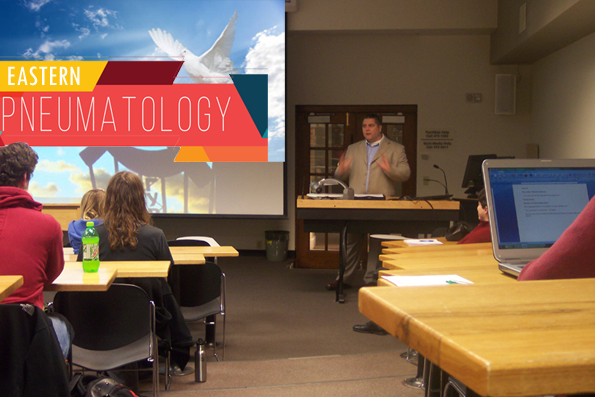
Dony K. Donev, D.Min.: Eastern Pneumotology Lectures
Eastern Orthodoxy can be expressed in one word: theism. The purpose and meaning of life is to become more like God. Deification is pursued by all means of human existence. This quest for divine likeness often includes the typical for the Eastern Church, speculation on the divinity and humanity of Christ, traditions on the doctrine of the Trinity and non-traditional mystical experiences. They appear in the context of both physical and spiritual characteristics in individual and corporate ecclesiastical environment. The role of the Spirit in the process of deification is threefold and involves: creation, re-creation and theism. Eastern Pneumotology follows the graduate process of theism development. The Spirit is involved in the original creation of the world as well as the new-birth experience. His work however, does not end there, but continues throughout the process of personal deification of the believer.
Departures from Orthodoxy
And thus, we arrive at the point of departure from Orthodoxy. Similar to Eastern Pneumotology, this departure can be expressed in one word, dualism. A prime example of the dualistic heresy is the Messalian movement. Arising around AD 360 in Edessa, the Messalians are described as polytheistic. They believe that every human creature has a personal demon, and that Satan and the Holy Spirit together can dwell in the individual. The believers receive a share of the divine Spirit and become equal to God in their incapability to sin.[1] Interesting enough, the Messalians are highly feministic allowing their women to the top of the ecclesiastical hierarchy.
A similar movement arises under the name Paulicians. Due to the mass persecution through which the Paulicians go, the preserved documents about their existence in history are limited. We do know that they appeared in Armenia and the Byzantium Empire. The final trace of Eastern dualism is in on the Balkans, and more particular in Bulgaria under the name Bogomils. 18[2]
Ministry Implications
The next three brief ministerial applications are inspired and drown from the above research on the experiences of the Oriental Orthodox. They are taken in chronological order in its direct context of Pentecostal practices.
- Prayer is the constantly present element through which pneumatic and mystical experiences in the East are obtained. For example, Pallamas reports that the gifts of the Spirit are obtained only through intense mental prayer, which is often accompanied with tears. [3] In the same charismatic context Cassian concludes that after a season the gifts will disappear. My personal implication is that this is precisely the season when prayer and have become strange to the church, and when tears have become are sign of weekends rather than a sign of humility in the presence of the Almighty God. Unfortunately, at the end of the twentieth century, this is precisely our general present satiation.
- Peace of Heart: Hazzaya gives five practical signs for recognition of the works of the Holy Spirit: (1) love of God burns within the heart of the believer, (2) growth in humility of the soul, (3) kindness to all people, (4) true love and (5) vision of mind. His main tool to recognize demons and demonic visions from God and divine revelations is the peace of heart, which follows the heavenly presence.[4] I am persuaded that today the rule of the peace of heart is still true in the hearing of the voice of God.
- Return, reclaim and preservation: The Armenian faith practices focus on preservation of the apostolic doctrines and habits.[5] Symeon the New Theologian also calls for a return to a radical living of the Gospel.[6] In a similar way, the early Church of God claimed to have as a main goal the reclaiming of the power of Pentecost; however, the church today has evolved to a structure that is quite far from this former idea. Furthermore, in this process the church has become too distinguished, replacing the primitivism of the Pentecostal experience with higher education, development programs, sophisticated structures, etc. And while a century ago we were the persecuted and ridiculed, now we are the people who reject and mock churches that carry the Pentecostal primitivism. Through this, we not only deny our historical relationship with them, but also abolish our Pentecostal heritage, which we often like to brag about.
Nevertheless, similar to the early Pentecostal movement, revival will not come to our churches through sophisticated worship liturgies, but rather through a genuine return to the initial Pentecostal experience. At the end of the twentieth century, simply reclaiming the power of Pentecostal is not sufficient. We need to preserve the Pentecostal primitivism in the reality of our present ecclesiastical setting. Only then we will be who we claim that we are.
[1] John of Damascus, De Haeresibus Compendio, 80, PS 3/1:col. clxxvi.
[2] Steven Runciman, The Medieval Manichee: A Study of the Christian Dualistic Heresy (Cambridge University Press, 1974), chapters 2, 4, and 5.
[3] Burgess, 52-53.
[4] Ibid., 173-74.
[5] Ibid., 113.
[6] Ibid., 62.
Our Bulgarian Chaplaincy Association celebrates 25 years of Military Ministry in Bulgaria
 Our Bulgarian Chaplaincy Association celebrates 25 years of Military Ministry in Bulgaria since the first event co-hosted by the Bulgarian Armed Forces and government officials in 1997.
Our Bulgarian Chaplaincy Association celebrates 25 years of Military Ministry in Bulgaria since the first event co-hosted by the Bulgarian Armed Forces and government officials in 1997.
2018 The Road toward a Balkan Multi-Ministry Center and Legal Status
2017 Bulgarian Chaplaincy Association: Legal Case Renewed
2015 Revisting the Integration Proposal with Local NATO Programs by Bulgarian Chaplaincy Association
2014 Bulgarian Chaplaincy Association: Vision and Resolution Reaffirmed
2012 First Class of the Master’s of Chaplaincy Ministry Program
2011 Master’s of Chaplaincy Ministry Program Continues
2010 Master’s of Chaplaincy Ministry Program begins in Sofia, Bulgaria
2009 Bulgarian Chaplaincy Association holds an introductory chaplaincy course in Yambol, Bulgaria
2008 The Case of a NATO Chaplaincy Model within the Bulgarian Army released
2007 Bulgarian Chaplaincy Associations Recognized by U.S. Department of State
2006 Registration for the Bulgarian Chaplaincy Association Rejected by Bulgarian Court
2005 The Bulgarian Chaplaincy Association presented before the Bulgarian Evangelical Alliance
2004 Three U.S. Bases in Bulgaria to be Built by 2010
2003 The Case of a NATO Chaplaincy Model within the Bulgarian Army
2002 First Balkan Chaplaincy Conference at the Central Church of God in Sofia, Bulgaria
2001 Church of God Chaplaincy Commission to visit Bulgaria
2000 Euro-seminar: Christian ethics in the military forces
1997 First Military Ministry Seminar in Veliko Tarnovo
With all this accomplished, in the beginning of the 21st century law and chaplaincy meet on the road to democracy as Bulgaria remains the only country in NATO without military force chaplaincy. But before chaplaincy could be legalized completely and endorsed by the state to its full functionality, several changes must be undergone. Some of them are:
- Legal provision allowing chaplains to work as staff in the army, which guarantees the equal presence of protestant chaplains as well.
- The approval, acceptance and implementation of a NATO based model for chaplaincy within the structures of the Bulgarian Army.
- Periodical and systematic educational strategy toward chaplaincy workers among Bulgarian evangelicals.
- A paradigm for cooperation of Bulgarian chaplains from various ethnic, religious and cultural backgrounds.
- Further research publications to enhance the efficiency of chaplaincy within the Bulgarian national context.
Also important [click to read]:
- U.S. Department of State recognizes our chaplaincy efforts in Bulgaria
- Bulgarian Chaplaincy Association: Integration Proposal with Local NATO Programs
- Bulgarian Chaplaincy Association: Vision and Resolution
- Chronology of our role and involvement in developing Church of God chaplaincy in Bulgaria since 2001
- Master’s of Chaplaincy Ministry Program in Bulgaria Reflections
- The Past Decade of Chaplaincy in Bulgaria (2006-2016)
- Related Publications and Presentations by Cup & Cross Ministries International
More Publications on the Topic and History of Events:
- Chaplaincy Conference and Master’s of Chaplaincy
- Chaplaincy Course in Yambol, BULGARIA
- Bulgarian Chaplaincy Association Annual Meeting
- Family Seminar for Military Men and Women
- Cup & Cross Ministries in Church of God Publications
- The Case of a NATO Chaplaincy Model within the Bulgarian Army
- 10 Years of Military Ministry in Bulgaria
- National Chaplaincy Conference
- Bulgarian Chaplaincy Association Gains Legal Status
- Chaplain Dees Visits Bulgaria
- Chaplaincy Course at the Bulgarian Evangelical Theological Institute
- Bulgarian Chaplaincy Association
- Meeting the NATO Chaplain
- National Chaplaincy Meeting
- Chaplaincy Developments in Bulgaria
- U.S. Bases in Bulgaria
- National Chaplaincy Meeting
- Chaplaincy in Bulgaria
- HEALTHCARE CHAPLAINCY IN BULGARIA
- Chaplaincy in Bulgaria
- Mission Bulgaria
The Central Church of God Ministry Center in Sofia (Bulgaria) Today
At the end of each year, we have made it a tradition to share the projects completed in the past months of hard work and labor for the Kingdom. But as we are approaching now 20 years of ministering and teaching with the Church of God denomination together, we have decided to recall some more long-term projects.
Exactly 20 years ago, my wife landed in Sofia, Bulgaria for the first time on a snowy December day. In fact, it was so cold that my mother worrying she would be coming from a much warmer subtropical climate, bought the biggest winter jacket she could find, so we could wrap her with it on the way from the airport. Not the most glorious meeting or welcome party as I recall it today.
I was eager to show her my Church, the Bulgarian Church of God, then second to none in the country with 32,000 membership strong and 400 congregations. Many of them newly started and 28 of them in the two-million people capital alone. The Central Church of God in Sofia, where I preached and ministered in 2001-02, had almost 1,200 people at that time. Its main meeting place was the multifaceted Church of God Ministry Center in a prime location in the growing European capital – a project we had undertaken in 1998 with the faithful will and support of some two dozen Church of God congregations from Florida. The documents from my personal archives tell the story best:
December 2, 2001 – I had just returned from Romania bringing with me World Missions Director Lovell Carry and Field Director (Central/Eastern EU/CIS) Dieter Knospe. They were in Bulgaria on a special visit to transfer the new building to the ownership and operation of the Central Church of God in Sofia per the contract signed with our overseer in the Spring of 2001.
The days of Ministry Weeks 17-19 that followed in December, 2001 and which my wife recorded here: https://cupandcross.com/2001/12/ are excruciating to even remember today. Sunday service with Sunday School and preaching, then again on Tuesday, Wednesday and Thursday. Then special Saturday services in Pravetz and many other places. Similar schedule plus the traditional celebration services in the following Christmas week. Repeat again for the New Year’s week. And all of these done in extremely cold weather and tons of snow on the ground – so much that my wife was delayed for days leaving for the States mid-January with all flights out of Sofia cancelled as the ice never melted enough to clear the runway and defrost the airplanes.
And all through this, the building never stopped. Regardless of all difficulties, we were all working eagerly and anticipating greater results. The multifaceted Church of God Center in downtown Sofia was to encapsulate all our ministries and many more, giving our young freedom generation the opportunity of a lifetime to make a difference for the Kingdom…
Today, when the building of our Ministry Center is being sold and it will be used for something the will of the donors never intended it to be, our Church of God denomination in Bulgaria is split to no less than 12 fractions all registered since 2005. All of them still carry a variant of the Church of God name and consist of the same people I grew up with under the Communist Regime of Bulgaria. We were promised a democratic leadership formed by indigenous people, but instead ended up with mini-bosses, regional micromanaging oversight, multiple splits and everything that characterizes a very typical colonial type of missions.
With the church organizations split time and again until torn into pieces, many of my peers chose alternative paths. Some left the ministry, others were hurt or divorced, a few even died and many simply gave up and moved on. With the rest, I have an appointment at the End of the World!
But none of this gives any pleasure or satisfaction to share. Especially when reminded that the dreams we all once dreamed are now hang on the willow trees by the rivers of Babylon. When reaching those waters of deeply troubled cross-cultural crises of faith and conviction, all bridges to people have sunken with no hope to recover again. God’s Kingdom has no gain in any of this!
Our prayer has hence turned into a prophetic protest for a new reality – not merely for a new mission paradigm, but one of a whole new mission… A Spirit-led ministry that forgoes all man-made politics and business-like models, but instead aims to build a New Church that is nothing less than the very cross-road where we encounter God and others in the Spirit of Pentecost.
CONFESSIONS of a Pentecostal Preacher
To Mark Alan
We know not why good people have to die,
but we do know we must tell their story…
Chapter I: Beyond the Church and into God
Be without fear in the face of your enemies.
Be brave and upright that God may love thee.
Speak the truth always, even if it leads to your death.
Safeguard the helpless and do no wrong.
That is your oath.
~Kingdom of Heaven (2005)
Separation of church from politics of false religiosity
The phone rang heavy and long. It was 4 AM in Bulgaria, but I was already up. A friend on the other end of the line was calling from South Carolina with a warning of some bad situation. The following morning, I was going to be contacted by the Director questioning why we were ministering in churches outside of our denomination.
The truth was we had ministered in some 300 local churches across the Balkan country of Bulgaria crossing all denominational boundaries and gathering youth from just about every confession. God had used us not only to reach and minister and to lead, but to step into an untouched spiritual realm, to undertake an unfamiliar ministry paradigm and to approach a brand new dimension of reality where He was to be the center of it all. And we had obeyed without questions. Now it was time to pay the price!
* * *
Our denomination, the one to which I remain both critically loyal and loyally critical, spreads over some five generations. Through its century old existence, the struggles and tension between theology and praxis has been in the center. And there, in the very essence of Pentecostalism itself, while some are always celebrating and being celebrated in the office or temple, others are always pushed in the periphery of normal life, hidden from the world behind closed doors and seeking a much deeper experience with God.
These modern day mystics are not only forgotten, but often forbidden. For their riot for righteousness cannot be conceived, contained and controlled by the religious norms of organized officiality. They speak as prophets to a world they so fervently try to escape from, about a reality that does not exist in the normal believer’s mindset. A stage of spirituality that cannot be preached without being lived in the social existence. And a relationship of God that goes far beyond common relationism and into God himself. That God, Who does not abide in offices and temples, but on the cross outside of the city walls…
But I knew nothing of this until that cold winter morning when the phone rang through darkness of the night. Knowing what is coming, rarely changes what we have done to get here.
7 Years in Bulgaria: CONFESSIONS of a Pentecostal Preacher
by Dony K. Donev, D.Min.
Upcoming Releases for United States (October, 2020)
Bibliata.com celebrates 25 years in online ministry by reading through the whole New Testament in one day
One of our first ministry websites, Bibliata.com just celebrated 25 years of ministry online. It began in the fall of 1996 with the sole purpose to reach Bulgarians online with the Bible. We began the Bibliata.com anniversary celebration with an out loud reading through the whole Bulgarian Bible on September 16 involving many churches and Christian communities in Bulgaria and abroad.
After 25 years with several million annual views and visitors, it has become the standard for the Bulgarian Bible online. Through the years, virtually all Bulgarian Bible versions as well as many others in foreign and original tongues were published. Audio Bible, Video Bible, extensive Bible commentary, a national sermon archive, multiple device apps and Bible study platforms are only a few of the projects completed. Additionally, a new Bulgarian translation in the works since 2007 is close to its publication date for the 500th anniversary of the Protestant Reformation. But this is not all…
The story of the Bulgarian Bible online is centered not only in products and projects, but in the very people we work with to create a community of believers, who pray, talk, grow and live together in the footsteps of the Savior. And this is worth much more than just 25 years of work and perseverance…
Cup & Cross Ministries Offers Ministry Leadership Table
March 25, 2021 by Cup&Cross
Filed under Featured, Missions, News, Publication
Parts of Leadership Table will be available on Gumbo Podcast. For more information visit www.CupandCross.com
I was called … Celebrating 30 Years of Global Ministry
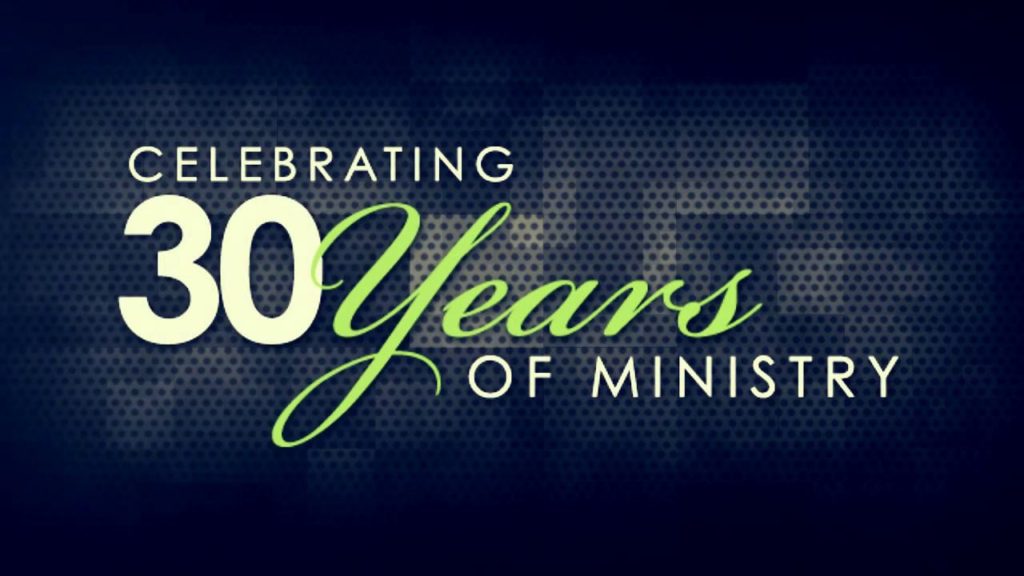
During the month of September, our ministry is celebrating 30 years in Global Harvest. I was saved in my hometown of Yambol Bulgaria on August 9, 1990 and baptized with the Holy Spirit seven days later. In two weeks time, God called me to preach and I preached my first sermon one Friday night in September at the Church of God in the mountain town of Pravetz, Bulgaria where a small group of Pentecostal believers had kept the faith during the long years of the Communist Regime. At that time, Pravetz was known as a stronghold of Communism where the Communist president who ruled Bulgaria for 36 years was born. Many, including school officials, did not receive our faith and openly tried to suppress its expression. All night prayer meetings were a weekly event, and chain fasting almost never stopped. The Bulgarian Church of God was still underground.
Only 14 were present at the meeting as I preached from Genesis chapter 14. Little I knew that just a few short months later, the youth group of the church would count over 100 strong and growing, and with the Berlin Wall now fallen revival was on the way. That night in Pravetz Bulgaria I just preached a sermon from the Word. That same Word, which God still claims cannot return void. For Revival must go on …
Now 30 years later, the time to tell the story has finally come!
This book should have been published seven years ago in 2013. Its original subtitle was going to read “7 Years in Bulgaria.” Instead, it took seven years to finish it with all documents, research archives and new cases. Now, it is finally here and it finally reads like a story – not just choppy interviews, deposition documented testimonies or court records, but a story of struggle, strength and solitude. A story of life and a story of us.
1995-96 The establishing of the first Bulgarian Church of God in Chicago and its first split
2000-01 The contracted building of the ministry center for the Central Church of God in Sofia
2002-03 The church split in Southaven and what followed next
2005-06 The post-communist split of the Bulgarian Church of God and consecutive sub-denominations
2010-13 The social media network that cost us millions (of souls)
2016 The vote that forced to kill a church
2019-20 The sale of the ministry center for the Central Church of God in Bulgaria
READ: CONFESSIONS of a Pentecostal Preacher
Ministry by Walking Around and the Network of Seven Churches of Revelation
Ministry by Walking Around and the Network of Seven Churches of Revelation
Although the Book of Revelation has been vastly studied and interpreted throughout church history, usually the focus is on one major issue within the text, namely, the role and future of the church. The main reason for this has been the in-depth prophetic and pastoral messages to the Seven Churches.
The value of the messages to the Seven Churches of Revelation is constituted by the fact that they are the last recorded Biblical messages to the Christian Church.[1] The letters to the Seven Churches obviously do not contain all of the usual elements used in the New Testament epistolary form. It is generally accepted that they were written as an application of the Revelation context and not as individual messages to the churches.
This contextual connection between the seven letters suggests a network of inter-church communication which was established between the seven churches. Several common elements are obvious from the text, the most obvious is their common geographical location as shown in Figure 1.
Figure 1: Distances between the Seven Cities of Revelation
The addressed churches are located clockwise, almost like they are forming a strategic circle of ministry.[2] Most churches are located thirty to forty miles from one another, which perhaps was the possible daily limit for traveling during that time. The shape of the circle of ministry, based on the order in which the churches were addressed, suggests a method of managing known today as Management by Walking Around (MBWA). The example in Revelation not only presupposes such methodology, but purposefully gives its clockwise direction in relation to the location of origin of the letters from the Island of Pathmos.
The purposeful positioning of the churches provided a common network (circle of ministry). It is also obvious from the text that at the time of writing, simplicity and democracy in organization were characteristics of the New Testament church government.[3] In the context of networking, each church maintained its own individuality because it is addressed separately in the text.[4]
Furthermore, the seven churches shared a common context of ministry in the area of Asia Minor which consisted of a great mixture of languages, customs and religions. All of the seven churches were located in cities which were under Roman rule and combined the customs of Roman, Greek, Assyrian, Persian, Babylonian, Egyptian and Jewish cultures as well as the various languages and dialects within them. The commonality in the context of ministry continued with the presence of numerous religious groups, cults, sects and gilds which were closely interwoven with civil affairs. Universal citizenship, universal religion, and a universal church were all ideas for which the Roman Empire was beginning to prepare. In such context, the seven churches shared a common goal of ministry, namely, spreading the Christian message.[5]
The seven letters were inspired by one occasion and one purpose as a tool for inter-church networking.[6] The message was not sporadic or spontaneous but thoughtfully planned and designed for each of the churches, based on an in-depth knowledge of the individual problems, members and solutions for future development.[7] The text demonstrates a common structure within the church illustrated by the common structure shared by each message. The letters reveal that the congregations shared similar practices of worship, ministry and teaching which were accompanied by problems and persecution.
A significant part of the common structure was the leadership because each church had a divinely-appointed messenger,[8] addressed by a common “divinely-charged”[9] network elder, who received a transmitted divine message. Such process shows that the networking was done by means of communication, of which the epistolary form is also proof.[10] The written text was only a formal documentary or a contract of the holistic communication accomplished through various multimedia means including those that relied on audio, visual and other senses. It constructed a mystical, divinely-inspired, supernatural and non-virtual reality which transformed the recipient of the message in the same way it did the messenger. Through this means, the network communication was not a miscommunication, but rather an authentic translation from the divine source to the very members of the congregations.
This form of communication was absolutely necessary for the common context of ministry in which the seven churches operated. This common context was the earth, not heaven,[11] and their common goal was to conquer.[12] Yet, at the same time the text is undisputable in that each church contained people prepared to conquer. This fact makes the victory of the church inevitable. Thus, while the churches are dealing with various problems and persecutions, they are already conquerors.
This observation brings the reader to the final commonality which the seven churches share; namely, that besides the earthly network of ministry there is another greater, divine, heavenly network which is in control. Such a conclusion is obvious from the fact that all of the churches without exception are known to the sender of the messages.[13] Their problems are relevant, criticism and encouragement which are prophetically delivered solutions are divinely provided and conquest of the church over the problems is definite and inevitable. This is undisputable proof that a God-centered New Testament networking of churches is the dependable and enduring model for both ministry networking and church government. Precisely this heavenly network is the supernatural source of the unique approach through which problems of the churches are to be solved. Thus, in addition to a common present reality, the churches share a future earthly applicability of the paradigm of ministry which makes their message relevant today.[14]
[1] Wade H. Horton, Lectures on the Seven Churches (Cleveland: Pentecostal Resource Center, n/a), 6.
[2] Henry M. Morris, The Revelation Recorded (Wheaton: Tyndale House Publishers, 1987), 66. Merril Tenney, Interpreting Revelation (Grand Rapids: Wm. B. Eerdmans Pubslihing Co., 1957), 50. For an in-depth discussion on the geographical location of the Seven Churches, its significance for the circulation of the letters and the leadership organization see William M. Ramsey, The Letters to the Seven Churches (Grand Rapids: Baker book House, 1979), 186.
[3] McDowell, 38.
[4] McDowell, 37.
[5] Ramsey, 120-21.
[6] Ramsey, 40.
[7] Ramsey, 39-40.
[8] Bruce M. Metzger, Breaking the Code (Nashville: Abingdon Press, 1993), 30. Ramsey, 69, 74ff.
[9] Ramsey, 80.
[10] McDowell, 37.
[11] Metzger, 29.
[12] Metzger, 30.
[13] Wade Horton, Seven Golden Candlesticks (Cleveland: Pathway Press, 1974), 72.
[14] Edward A. McDowell, The Meaning and Message of the Book of Revelation (Nashville: Broadman Press, 1951), 35. Clovis G. Chappell, Sermons from Revelation (New York: Abingdon-Cokesbury Press, n/a), 59.



